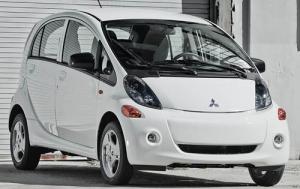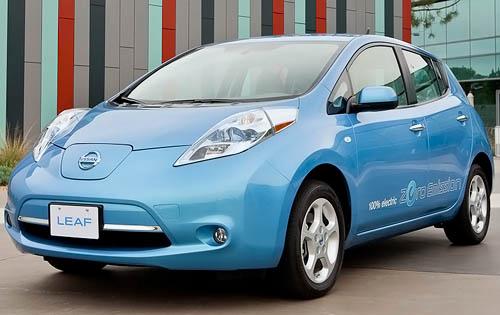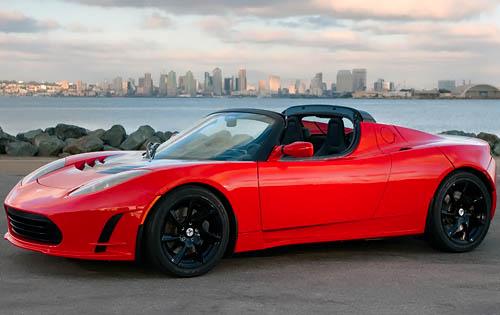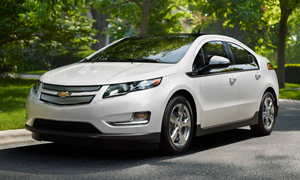You’re driving home from work one evening, your eyes fixed on the road in front of you as traffic races past. Along the way, you look at your fuel gauge. You’re running low. By the time you pull into your garage, you notice your car’s tank is almost empty. What do you do?
It’s simple. You just plug it in and charge it up.
The era of the Electric Vehicle (EV) is upon us. After a stuttering start, innovations for an environmentally friendly electric automobile have advanced in leaps and bounds over the past decade.
The Town of Normal recently hosted an event in the Marriott Ballroom dedicated to EVs and the effort that the Town of Normal is making to establish an environmentally compliant community. Several EV models were on display in the bustling center showroom, with EV experts on hand to talk with less-informed guests.
At the same time, the Normal Theater screened the 2011 documentary Revenge of the Electric Car, directed by Chris Paine and narrated by actor Tim Robbins. The documentary charts the troubled history of electric vehicles, from that hesitant beginning to the concept’s triumphant re-emergence.
The history of the electric car is surprisingly long. The first successful electric automobile was built in 1891 by William Morrison of Des Moines, Iowa. By 1900, the concept was enjoying its heyday, with electric autos representing nearly a third of cars on the streets of New York City, Boston, and Chicago.
But the craze ran out of juice. By the 1920s sales had plummeted, the collapse blamed on the vehicle’s lack of horsepower, the demand for long distance travel and the ready availability of gasoline.
Today, with the market boasting the likes of the Chevy Volt, Nissan Leaf, Tesla Roadster, and Mitsubishi i MiEV, the electric car seems here to stay. Gartner, the largest technology market research firm, is forecasting 100,000 sales this year in the United States.
With a Mitsubishi plant on its doorstep, Normal has been at the center of a campaign to promote electric cars in the U.S. The town has been touted as the electric vehicle capital of the United States, with up to 1,000 Mitsubishi electric cars alone being owned in the region. To mark its significance, Mitsubishi released an EV friendly Normal commercial in which they gave a handful of locals their own i MiEV.
Charging stations are currently increasing in number locally. You can find them on campus and at several public locations including Wal-Mart and Kroger. The Town of Normal says it has provided these stations as part of its drive to promote a healthier image of the community.
EV owners can also charge their vehicles at home. Household chargers are available for purchase and installation, with basic units averaging around $1,500. Most units, such as the GE Wattstation Wall Mount, offer a high speed option, reducing the charging time from 12-18 hours to 4-8 hours.
Overall, annual electric costs are estimated at $264, charging your vehicle 5 hours per day at 240 V.
Sales associate Bob Spatz, of Plug-In Vehicle Solutions, represents four different manufacturers of vehicle charging units. These units are built for outdoor usage, converting wind and solar energy to AC voltage for plug in car receptacles.
“All units can charge off of wind or solar. The solar panels provide charging during the daytime, “ says Spatz.
“ And everybody says it sounds like science fiction, right?”
At the moment, the new public charging stations are free to use. How long this will continue, however, is open to question, with different manufacturers providing different time frames of up to five years. Nor is it clear how EVs will affect the price of electricity in the future.
Emmy Grace, is a researcher of EV policies and incentives with The Sierra Club, an organization that promotes environmentally friendly policies and provides legal representation for cases concerning EV technology.
One of the club’s present concerns is monitoring EV bills passed through Congress.
“Some of these are positive. Others are not so positive, trying to put taxes on EVs,” says Grace. “Because consumers are not paying for gasoline, they (lawmakers) want to try to get money out of them in other ways.
“We are just trying to keep people informed of their local and state policies.”
For more information on the charging units available from Plug-In Vehicle Solutions, check out their website http://www.getplugging.com .
For more information on the Sierra Club and how you can get involved, visit their website – http://www.sierraclub.org .



